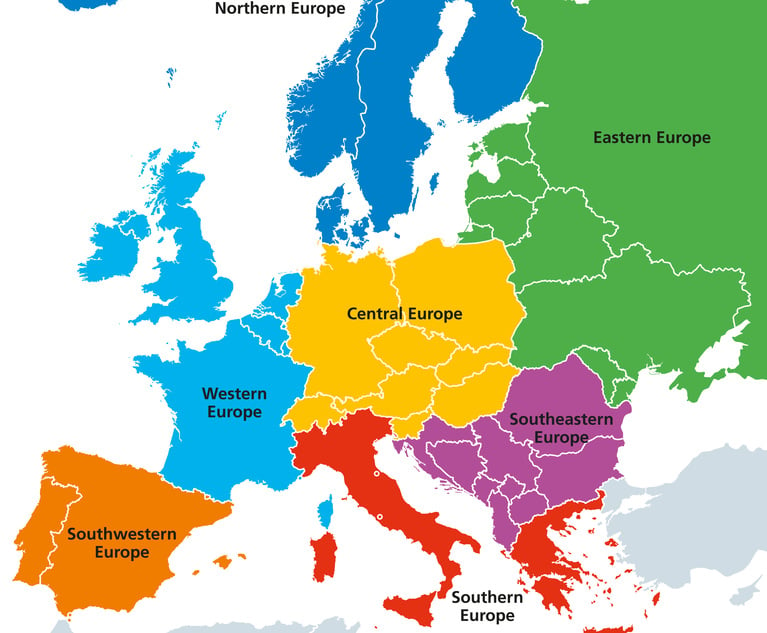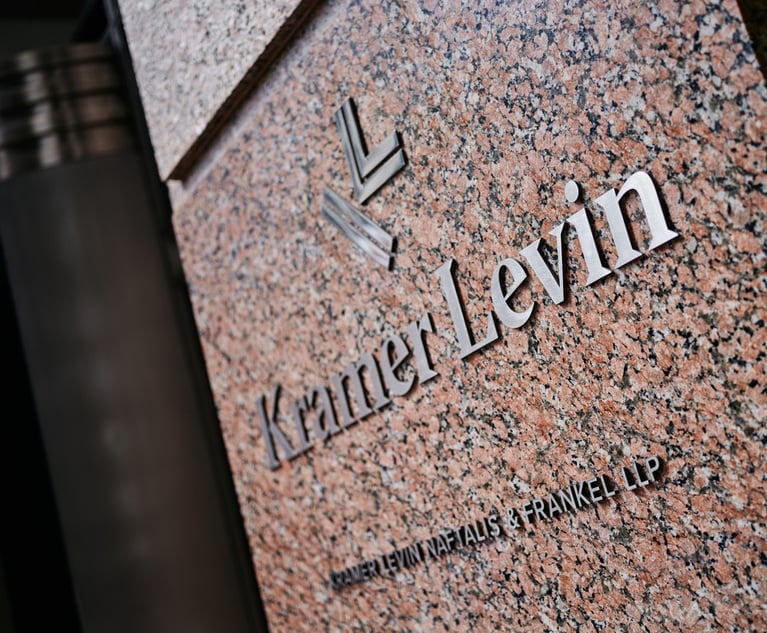Africa: Full Circle
Hydrocarbons account for more than 90% of the value of total Algerian exports. Francois Krotoff and Nicolas Bonnefoy examine state moves to protect the market
October 25, 2006 at 08:03 PM
6 minute read
Algeria recently challenged the reform of the hydrocarbons sector that took place in 2005 when Minister of Energy Chakib Khelil brought in laws withdrawing the monopoly held by the state-owned company Sonatrach under the Hydrocarbons Law 1986.
Indeed, Algeria's President Abdelaziz Bouteflika passed an order on 29 July of this year that reversed the withdrawal of that monopoly. The 2006 Hydrocarbons Order leaves the institutional framework and the contractual regime set up by the 2005 Hydrocarbons Law unchanged, but the market liberalisation that the 2005 law aimed to achieve is almost entirely given up. In addition, the latest order creates a new windfall profit tax for all contracts entered into under the 1986 law.
The 1986 law confirmed the monopoly of Sonatrach over exploration, exploitation and transportation of hydrocarbons in Algeria. International oil and gas companies (IOCs) could only carry out hydrocarbons exploration and exploitation with Sonatrach, the sole holder of the mining titles, through a partnership consisting mostly of production-sharing contracts.
The 2005 law initially aimed to terminate Sonatrach's monopoly over hydrocarbons activities, leaving the state-owned company as a common player in the hydrocarbons sector, competing with other IOCs investing in the liberalised upstream, midstream and downstream activities in Algeria.
To achieve such liberalisation, a new institutional framework was established that included two new regulation agencies – one for hydrocarbons development, Agence Nationale pour la Valorisation des Ressources en Hydro-carbures (ANALFT), which became the sole holder of the mining titles, and one for hydrocarbons regulation, Agence Nationale de Controle et de Regulation des Activites dans le domaine des Hydrocarbures (ARH).
The contractual regime set up by the 2005 law established an exploration and/or production contract known as contrat de recherche et/ou d'exploitation (CRE) – entered into between the IOC and ANALFT – that aimed to further a competitive, fair and transparent bid process. The CRE entitles the IOC to undertake exploration activities in Algeria, as well as exploitation activities in case of commercial discovery, on an exclusive basis.
The initial 2005 law no longer includes any reference to a production-sharing mechanism and, as such, the CRE shall be analysed as a tax royalty agreement. The contracts entered into before the publication of the 2005 law remain valid and in full force until their initial term and, therefore, Sonatrach remains a party to those contracts in its initial capacity of mining title holder.
As for the tax regime, whereas Sonatrach is to pay the royalty pertaining to the whole production and income tax on behalf of the IOC for the contracts entered into under the 1986 law, the 2005 law provides that the operator under the CRE shall pay taxes directly.
The 2006 order, passed while the Parliament was in recess, reallocates to Sonatrach a majority stake, which can not be lower than 51%, for almost all upstream, midstream and downstream activities in Algeria.
The 2005 law was relatively consistent as it allocated the entire production to the IOCs and Sonatrach was only allocated an option to acquire a 20%-30% participation, which was in line with the practice in force in the international petroleum industry. In this regard, the mandatory 51% participation is no longer consistent and may reduce the IOC's stake significantly, not to mention that the 2005 law also gives a pre-emption right to Sonatrach for any assignment of a participating interest.
In addition, with a mandatory participation of a minimum 51%, Sonatrach has a majority control under both the CRE and the joint operating agreement (JOA) to be entered into with the IOC and, as such, may reasonably require to be involved in the most important decisions, such as the approval of the decision of commerciality and the approval of a development plan.
However, the 2006 order does not provide any information pertaining to the decision of commerciality and, in any event, Sonatrach shall only enter into the JOA within 30 days after the approval of the said development plan by ANALFT. To that extent, Sonatrach's majority participation does not only reduce the IOC's stake but is also very likely to entail issues with ANALFT. It is rumoured that Sonatrach would be preparing the next licensing round, which if confirmed would seriously challenge the institutional framework established in 2005.
Transportation and refining activities may now be only undertaken by Sonatrach, or a local company in which Sonatrach owns at least a 51% stake, leaving hydrocarbons transformation as the only activity that remain liberalised.
The 2006 order introduces a windfall profit tax (WPT). All IOCs operating in Algeria in accordance with a contract governed by the 1986 law are now subject to a non-deductible WPT as from 1 August, 2006. The WPT is based on the share of production allocated to the IOC when the Brent price exceeds $30 (£16) per barrel. It is calculated at a rate, which ranges from a minimum of 5% to a maximum of 50%. However, the 2006 order does not provide any information pertaining to the method of calculation and assessment of the said WPT, which shall be provided later.
It is difficult to assess the full impact of the 2005 law as amended by the 2006 order since implementing regulations have yet to be passed. Some are already challenging the validity of the 2005 law as it would seem that the latter was not adopted in accordance with the required constitutional procedure. If that is confirmed, the 2006 order may be challenged as well. To that extent (and in any event), the 2006 order may not be ratified by parliament and therefore may be null and void. And Algeria would be back to square one – the 1986 Hydrocarbons Law, which in the end may not be such a negative outcome.
Francois Krotoff is a lawyer at Gide Loyrette Nouel in Paris and Nicolas Bonnefoy is a lawyer at the firm's London office.
This content has been archived. It is available through our partners, LexisNexis® and Bloomberg Law.
To view this content, please continue to their sites.
Not a Lexis Subscriber?
Subscribe Now
Not a Bloomberg Law Subscriber?
Subscribe Now
NOT FOR REPRINT
© 2024 ALM Global, LLC, All Rights Reserved. Request academic re-use from www.copyright.com. All other uses, submit a request to [email protected]. For more information visit Asset & Logo Licensing.
You Might Like
View All
To Thrive in Central and Eastern Europe, Law Firms Need to 'Know the Rules of Game'
7 minute read

GOP's Washington Trifecta Could Put Litigation Finance Industry Under Pressure

Trending Stories
- 1Dog Gone It, Target: Provider of Retailer's Mascot Dog Sues Over Contract Cancellation
- 2Lululemon Faces Legal Fire Over Its DEI Program After Bias Complaints Surface
- 3Plaintiff Gets $500K Policy Limit Without Surgery
- 4Philadelphia Bar Association Executive Director Announces Retirement
- 5SEC Chair Gary Gensler to Resign on Trump's Inauguration Day
Who Got The Work
Michael G. Bongiorno, Andrew Scott Dulberg and Elizabeth E. Driscoll from Wilmer Cutler Pickering Hale and Dorr have stepped in to represent Symbotic Inc., an A.I.-enabled technology platform that focuses on increasing supply chain efficiency, and other defendants in a pending shareholder derivative lawsuit. The case, filed Oct. 2 in Massachusetts District Court by the Brown Law Firm on behalf of Stephen Austen, accuses certain officers and directors of misleading investors in regard to Symbotic's potential for margin growth by failing to disclose that the company was not equipped to timely deploy its systems or manage expenses through project delays. The case, assigned to U.S. District Judge Nathaniel M. Gorton, is 1:24-cv-12522, Austen v. Cohen et al.
Who Got The Work
Edmund Polubinski and Marie Killmond of Davis Polk & Wardwell have entered appearances for data platform software development company MongoDB and other defendants in a pending shareholder derivative lawsuit. The action, filed Oct. 7 in New York Southern District Court by the Brown Law Firm, accuses the company's directors and/or officers of falsely expressing confidence in the company’s restructuring of its sales incentive plan and downplaying the severity of decreases in its upfront commitments. The case is 1:24-cv-07594, Roy v. Ittycheria et al.
Who Got The Work
Amy O. Bruchs and Kurt F. Ellison of Michael Best & Friedrich have entered appearances for Epic Systems Corp. in a pending employment discrimination lawsuit. The suit was filed Sept. 7 in Wisconsin Western District Court by Levine Eisberner LLC and Siri & Glimstad on behalf of a project manager who claims that he was wrongfully terminated after applying for a religious exemption to the defendant's COVID-19 vaccine mandate. The case, assigned to U.S. Magistrate Judge Anita Marie Boor, is 3:24-cv-00630, Secker, Nathan v. Epic Systems Corporation.
Who Got The Work
David X. Sullivan, Thomas J. Finn and Gregory A. Hall from McCarter & English have entered appearances for Sunrun Installation Services in a pending civil rights lawsuit. The complaint was filed Sept. 4 in Connecticut District Court by attorney Robert M. Berke on behalf of former employee George Edward Steins, who was arrested and charged with employing an unregistered home improvement salesperson. The complaint alleges that had Sunrun informed the Connecticut Department of Consumer Protection that the plaintiff's employment had ended in 2017 and that he no longer held Sunrun's home improvement contractor license, he would not have been hit with charges, which were dismissed in May 2024. The case, assigned to U.S. District Judge Jeffrey A. Meyer, is 3:24-cv-01423, Steins v. Sunrun, Inc. et al.
Who Got The Work
Greenberg Traurig shareholder Joshua L. Raskin has entered an appearance for boohoo.com UK Ltd. in a pending patent infringement lawsuit. The suit, filed Sept. 3 in Texas Eastern District Court by Rozier Hardt McDonough on behalf of Alto Dynamics, asserts five patents related to an online shopping platform. The case, assigned to U.S. District Judge Rodney Gilstrap, is 2:24-cv-00719, Alto Dynamics, LLC v. boohoo.com UK Limited.
Featured Firms
Law Offices of Gary Martin Hays & Associates, P.C.
(470) 294-1674
Law Offices of Mark E. Salomone
(857) 444-6468
Smith & Hassler
(713) 739-1250









